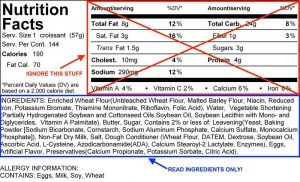
Your body is your garden. Learn its secrets.
Health. Without it money means nothing. How healthy are you? How healthy is your family? How healthy is your environment? How healthy is the food you eat?
The things you touch. The things you eat. The things you do. The society you live in. Everyone contributes to health, to healthy living and to a healthy world.
A health check at your local grocer starts in the parking lot. Are there chemicals in the run off headed to your lake? Are there stagnant puddles attracting bugs large or small? Is garbage being left out? Are there flocks of birds huddled about? Are the shopping carts left outside? Have they been sanitized?

What is the most common place germs are spread on Earth?
Everything centers on that shopping cart. How many people put their unwashed hands on your shopping cart today? Did they push the germs around with a wet towel or was it actually sanitized with an electrostatic antimicrobial mist?
The typical shopping cart handle is touched by several shoppers per day. Most microbes don’t live long lives but they multiply very quickly. Some even grow protective coatings called spores. In New Mexico a sample was found that preserved a 250 Million year old bacteria!
There is only one way to get rid of harmful bacteria and the solution is not swabbing with a wet towel. The surface must be sanitized with an antimicrobial agent. There are many such agents but which ones are safe? You don’t want harmful chemicals on your hands either!
To sanitize shopping carts with antimicrobial agents many grocers are turning to push or pull through systems to save time. A mist is sprayed on the cart until it dries. These systems vary in sophistication. The best of class bonds the antimicrobial to the surface so that it keeps killing germs for weeks and months after it has been sanitized. Ask your grocer what system they are using. Cloth wipes are an indication of increasing awareness of the problem but they do not actually solve it.

The fine print includes the actual ingredients of your food. Read and understand it!
Supermarket Green News is here for the public. We care about every aspect of health. Once in the store you should be reading labels. You should be conscious of not just the bacteria on the surfaces you touch but of the bacteria living in your own gut. Are you aware that there are more bacteria cells in your body than there are human cells? Are you aware that the majority of your DNA is dedicated to consuming and properly utilizing the many different types of bacteria your body may carry at any given time?
Most of your bacteria lives in your gut and many of them are helpful bacteria. They help you digest your food. Without them you would starve to death! But most people do not eat intelligently and they are completely unaware of the vital role bacteria plays in digestion. They do not know how to cultivate good bacteria and reduce harmful bacteria in their digestive system.
We suggest that you read your food labels carefully. The two most harmful types of ingredients to look out for are high fructose corn syrup and preservatives such as propyl gallate, sulfites and brominated oils. As a general rule, the outside of the store is where the refrigerators are, preserving food through cooling rather than through artificial ingredients. Avoiding the inside aisles, where most of the sweets and preservatives are, may be a good start to a healthy lifestyle.
Supermarket Green News is booting back up and will help you steer through the latest diet craze and make sure you have plenty of great recipes to fit your healthy lifestyle. Saving the environment is just one side of green living. A holistic approach to the supermarket itself involves you and the people you choose to do business with.
Together we can live longer, happier, healthier and more vibrant and meaningful lives by learning. Dr. Rob Knight at the University of California Institute on Aging, explains how microbiomes in our guts affect not just infectious but also and especially chronic disease.